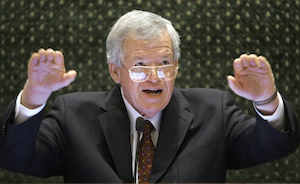IN OTHER BUSINESSThe City Council unanimously approved tax breaks for the Coca-Cola Bottling Co., which is set to build a new distribution center at the former Olan Mills site.City officials also voted to rezone the property to make way for the new facility. Chattanooga Coca-Cola has pledged to spend $62 million there and bring 43 new jobs to the city over the next year.If Hamilton County commissioners approve, the combined city and county tax incentives for Coca-Cola will total an estimated $5.9 million over the next 12 years. This agreement would give the company two years relief from paying property taxes, except for funds to the school system.
Police officers and firefighters will have to contribute more to their retirement plan starting July 1 and new recruits will be subject to a retirement age with Tuesday's passage of Chattanooga Mayor Andy Berke's pension reforms.
The final City Council vote ushers in the fire and police pension reforms a year after Berke announced a plan to appoint a task force to study how to curb the city's growing pension spending and address an unfunded liability that was among the state's worst yet keep the plan on sound financial footing.
As a result, employee contributions will rise by nearly 40 percent and retirees' cost-of-living adjustments will be reduced. Meanwhile, the city is expected to immediately save $5 million. Its unfunded liability is expected to improve by 10 percentage points -- from about 60 percent to 70 percent -- in the first year of changes.
Members of Berke's 18-person task force that negotiated the deal said they are relieved that the months of back and forth and the tensions among the city, unions and the pension fund's governing board are over. More importantly, the city was able to preserve a defined benefit plan, they said.
"Relief, number one word relief," said Sgt. Toby Hewitt, former president of the local Fraternal Order of Police. "Overall the impacts of this agreement and the benefits it provides long term for everybody involved, it's the greatest good for the greatest number."
Those opposed to the reform showed up at City Council on Tuesday hoping the council would listen, but walked out when the vote was unanimous in favor of the reform. The group of retirees and a few active employees has dwindled to a handful, but they said they plan to sue the city.
"There is a lot at stake here," said retired police Sgt. Kirk Salter.
In a last attempt to block the reforms, Salter sent City Attorney Wade Hinton a letter asking him to issue a formal opinion on whether the changes are legal. The group cited a Tennessee Supreme Court opinion that found that benefits earned by vested employees and retirees cannot be reduced.
"I think the new plan is unlawful," wrote Salter. "You have a duty to make sure the city does not pass an unlawful act."
The city attorney's office reviewed the pension reform before presenting it to the City Council in February, but Hinton said he couldn't comment on Salter's letter because he hasn't had a chance to read it.
Starting July 1, retirees will notice that cost-of-living adjustments on their checks will be about $45 less each month. But for the first two years that also means the COLA won't be compounded, or added to their overall salary. That's the change that they say will hurt.
Current officers and firefighters will start to see their retirement contributions increase by 12.5 percent and continue for three years. The average employee with a salary of $44,786, who pays 8 percent into the fund, would see his or her share rise from the current $3,582 by more than $1,300 over three years.
But Sgt. Tim Tomisek, president of the International Brotherhood of Police local chapter, said officers who currently pay 9 percent won't notice a difference in the first year, but will continue to pay the same amount because of changes to the deferred retirement lump sum option, or DROP.
The pension reform retains the DROP, but employees with fewer than 24 years of service won't receive any interest when they take their DROP. Current retirees get either 7 or 4.75 percent interest, depending on which of two DROP plans they're in.
The city will reimburse employees who are paying 9 percent contribution levels for their DROP, which is equivalent to about $2,000 to $3,000, Tomisek said.
For employees with less than 10 years vested, they won't be able to retire until age 50 or they can retire after 28 years of service. New hires will have to wait until 55 to draw retirement.
Contact staff writer Joy Lukachick at jlukachick@timesfreepress.com or 423-757-6659.


